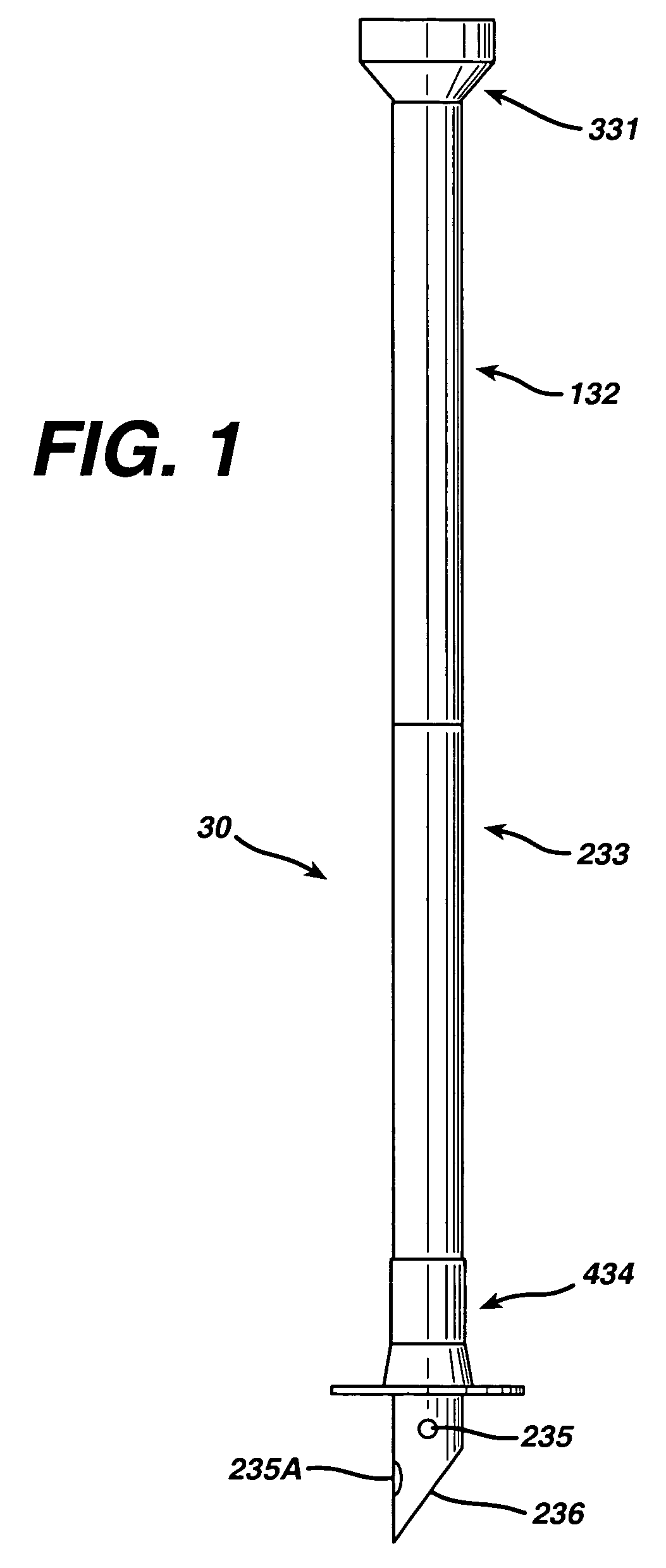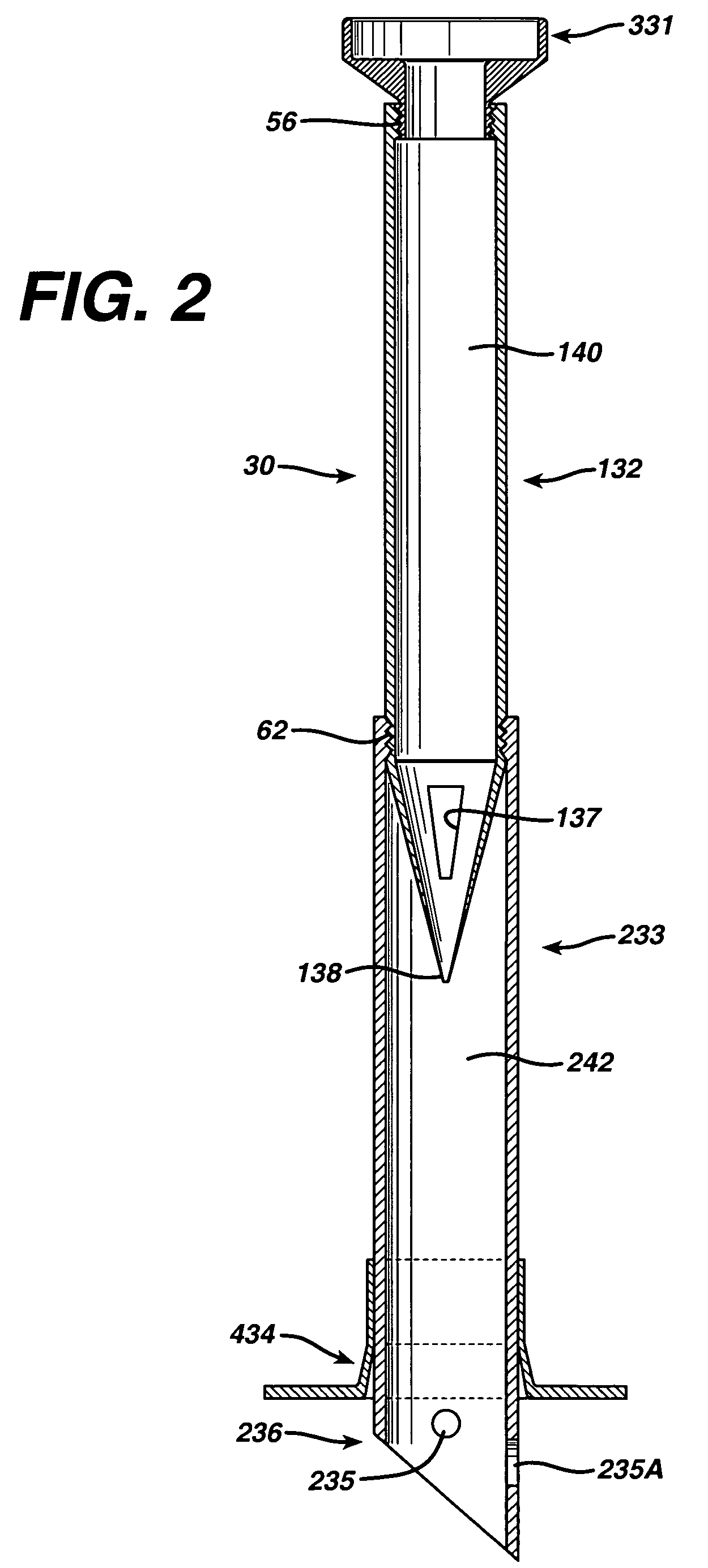Method for accessing an operative space
a technology for accessing the operative space and using the technique of vacuum assisted surgery, which is applied in the field of medical devices and methods, can solve the problems of difficulty in adjusting the operation position, the working length of conventional trocars is not sufficient, and the operation is not easy to achieve the effect of losing the operative spa
- Summary
- Abstract
- Description
- Claims
- Application Information
AI Technical Summary
Benefits of technology
Problems solved by technology
Method used
Image
Examples
Embodiment Construction
[0052] By the term “elongate” or “elongated” it is meant that a component or member has a length at least three times its width (e.g. a cylinder with a length at least three times the outer diameter).
[0053] The terms “procedure” or “operative procedure” mean medical procedures, including without limitation exploratory, diagnostic, therapeutic, surgical, ambulatory or mobile, emergency, and post mortem procedures, either open or laparoscopic or laparoscopically assisted.
[0054] The term “operative space” means any working space created within the body, such as below any tissue or an organ by relative separation, such as by lifting partially or fully one body structure relative to another.
[0055] By “releasable attachment” and “releasably attachable” it is meant two or more components can be repeatedly joined and separated without breaking, distorting, damaging, or impairing the function or form of the components.
[0056] The term “distal” is used to refer to the portion, part, end, o...
PUM
 Login to View More
Login to View More Abstract
Description
Claims
Application Information
 Login to View More
Login to View More - R&D
- Intellectual Property
- Life Sciences
- Materials
- Tech Scout
- Unparalleled Data Quality
- Higher Quality Content
- 60% Fewer Hallucinations
Browse by: Latest US Patents, China's latest patents, Technical Efficacy Thesaurus, Application Domain, Technology Topic, Popular Technical Reports.
© 2025 PatSnap. All rights reserved.Legal|Privacy policy|Modern Slavery Act Transparency Statement|Sitemap|About US| Contact US: help@patsnap.com



